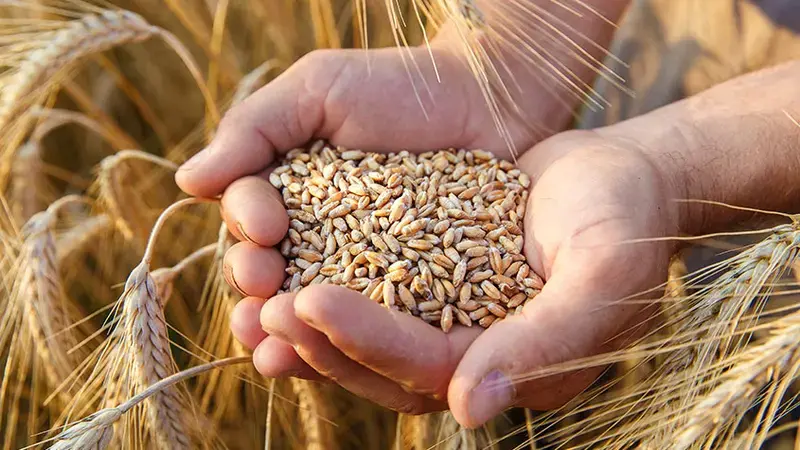Egypt's Agriculture Growth: A Study of the Seed Sector

This work is made possible through support of the Food & Nutrition Security Support Facility, and financed through the Ministry of Foreign Affairs of the Netherlands.
By Zewdie Bishaw - ICARDA Research Team Leader - Seed systems, International Nurseries and seed Health
ICARDA and the Wageningen University & Research (WUR) joined forces to assess Egypt's seed sector and its ability to withstand today's interconnected stresses and ensure food security.
Climate change, water scarcity, and rapid population growth are major threats to the agricultural sector and food production across Central and West Asia, and North Africa (CWANA), one of the most water-scarce regions in the world. To increase food production and ensure food security, it is crucial that farmers can access agricultural innovations, including high-quality seeds of new, climate-smart crop varieties resilient to emerging pests and diseases and tolerant to heat, drought, and soil salinity.
In March, ICARDA researchers alongside the WUR conducted a study, built on previous bilateral work of different organizations in the Netherlands and Egypt, to assess the performance of Egypt’s seed sector. The study encompasses ICARDA’s work in the CWANA region and the keen interest of the Egyptian Government in building partnerships for the development of a sustainable seed sector.
The assessment aimed to shed light on challenges and barriers that hamper the development of a well-functioning innovative, competitive, resilient, and inclusive seed sector in Egypt.
Due to the variations in seed systems among crops in Egypt, the study focused on the seed systems of cereals, food legumes, vegetables, and potatoes, combining the key challenges and opportunities at the sector level. Researchers identified key interconnected areas and topics for improvement in the seed sector and prioritized aspects such as streamlining access to climate-resilient varieties - vital for both seed production and variety development. The study also highlighted aspects more straightforward than technology and innovation - the basic need for a centralized, collaborative, and up-to-date digital seed platform was identified as essential for sector coordination and production planning.
Seeds are at the core of food production and a lack of access to quality seed is a key factor hindering agricultural productivity in Egypt. A well-functioning seed sector can provide such access, but only with collaboration between multiple stakeholders from the public and private sectors, civil society, and knowledge institutes both within and outside of Egypt. Therefore this study is highly valuable in providing entry points for partnerships that can improve seed sector performance and work towards achieving a need-driven seed sector transformation for agriculture in Egypt. It can also help in developing a global resilient, sustainable agrifood systems model that thrives in the face of climate change.
